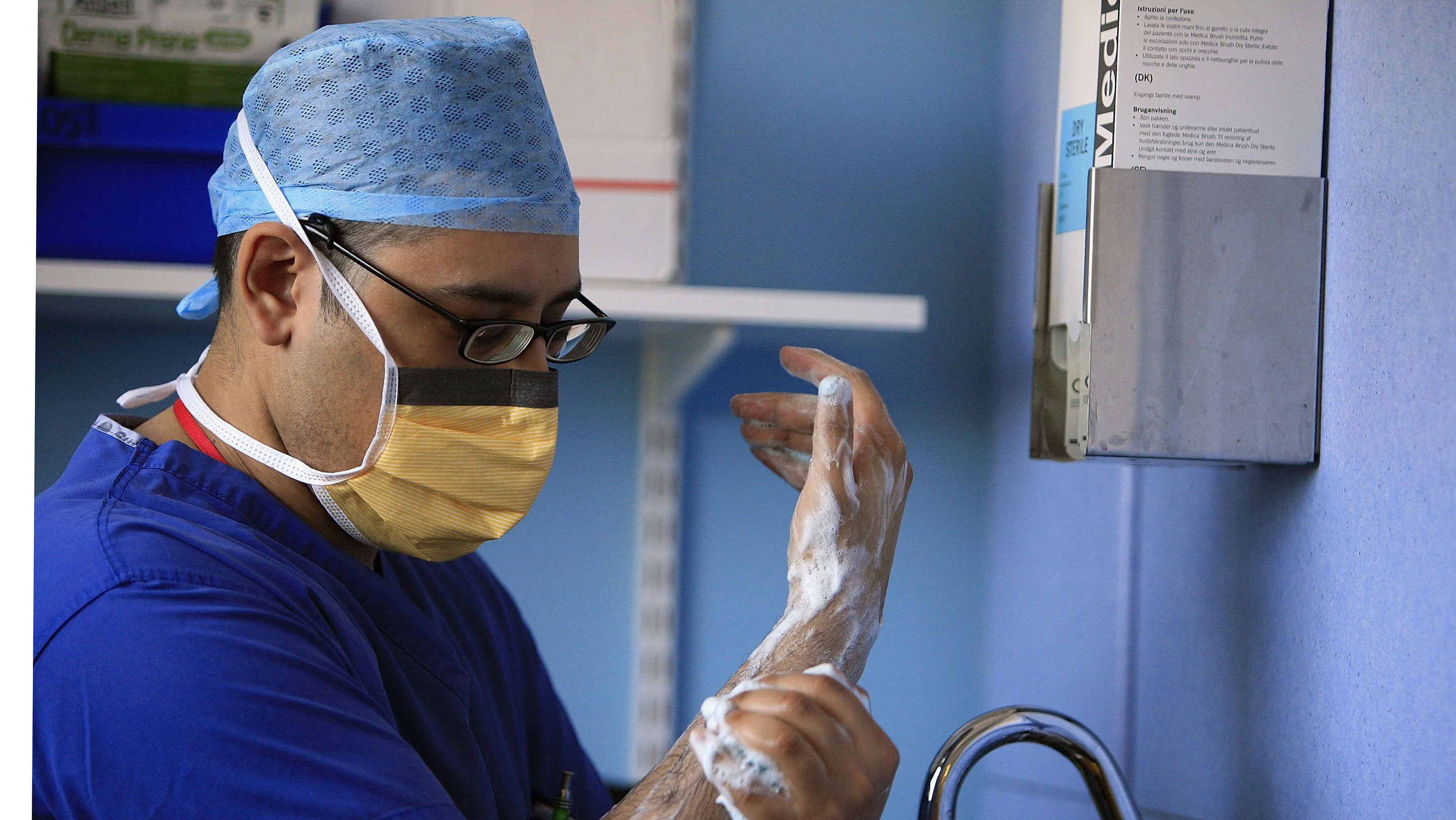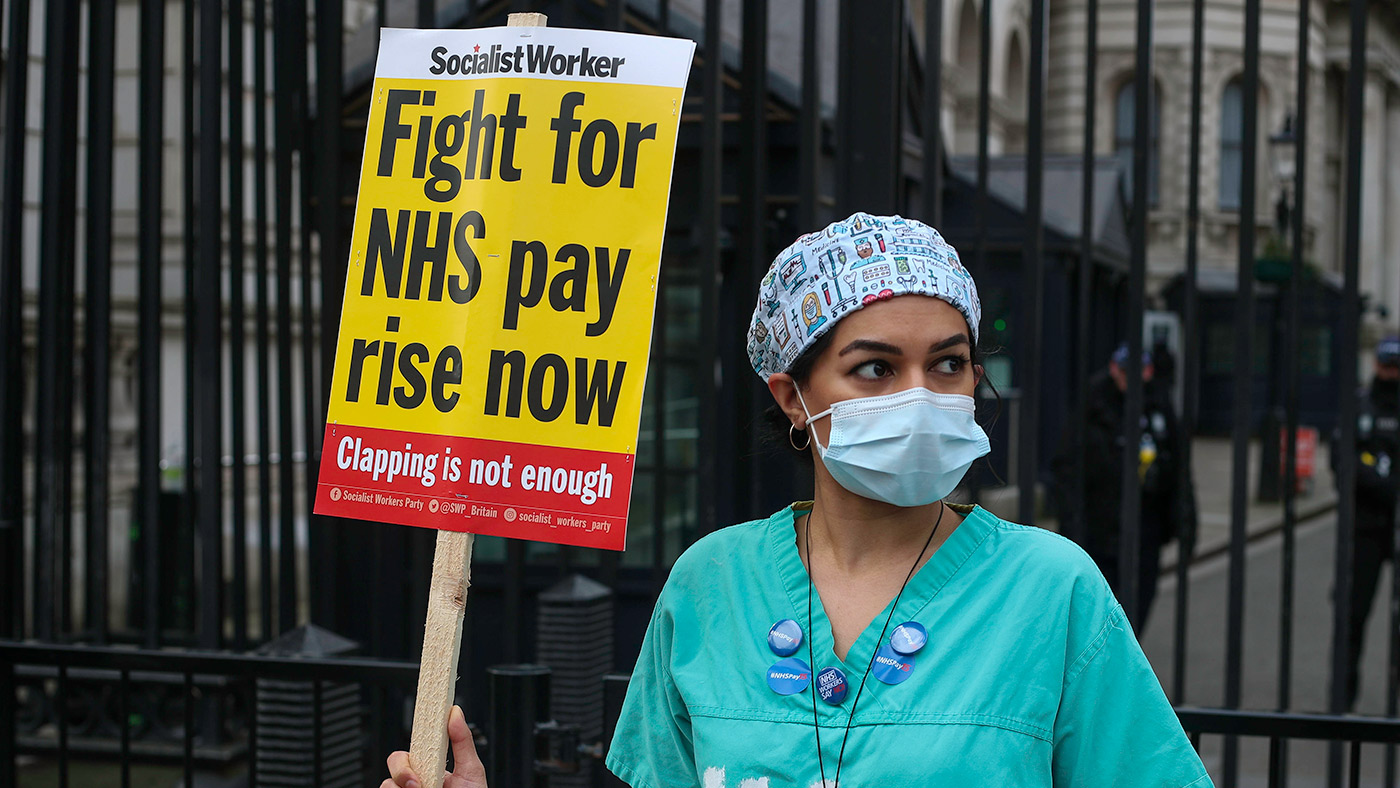Hunt declares seven-day NHS ultimatum in 'war with doctors'
Health secretary claims thousands of patients are dying because of Monday-to-Friday NHS culture

A free daily email with the biggest news stories of the day – and the best features from TheWeek.com
You are now subscribed
Your newsletter sign-up was successful
Hospital consultants face an ultimatum on weekend working by the health secretary, who claims a Monday-to-Friday culture in the NHS is causing patient deaths.
Jeremy Hunt will tell the doctors' union, the British Medical Association, that it has six weeks to negotiate a radical overhaul of hours and pay or face having new terms imposed upon it.
In a speech later today, he is expected to say that 6,000 patients die needlessly each year because there is not an adequate seven-day health service.
The Week
Escape your echo chamber. Get the facts behind the news, plus analysis from multiple perspectives.

Sign up for The Week's Free Newsletters
From our morning news briefing to a weekly Good News Newsletter, get the best of The Week delivered directly to your inbox.
From our morning news briefing to a weekly Good News Newsletter, get the best of The Week delivered directly to your inbox.
Research in the Journal of the Royal Society of Medicine suggests patients are 16 per cent more likely to die in hospital if admitted on a Sunday rather than mid-week.
The announcement was described by The Times as a "new front" in Hunt's "war with doctors". The BMA argues that the plans are not possible without significant investment in additional NHS resources. Ministers blame the restrictive nature of consultants' contracts, which give doctors extra cash for working unsocial hours or the option to opt out of weekend working altogether.
Hunt is expected to tell doctors to "get real" on the issue. "I will not allow the BMA to be a road block to reforms that will save lives," he is expected to say. "Be in no doubt: if we can't negotiate, we are ready to impose a new contract."
Dr Mark Porter, chairman of the BMA council, says that doctors support more seven-day services but the government has failed to come up with a proper plan to pay for these.
A free daily email with the biggest news stories of the day – and the best features from TheWeek.com
"Today's announcement is nothing more than a wholesale attack on doctors to mask the fact that for two years the government has failed to outline any concrete proposals for introducing more seven-day hospital services," he said.
Seven-day NHS: how will the ambitious plan be funded?
18 May
In his first major speech since winning the election David Cameron will outline plans to transform the way hospitals and GP surgeries operate, and insist that the NHS is secure under a Tory government.
"Our commitment is to free healthcare for everyone – wherever you are and whenever you need it," he was due to tell an audience at a Midlands GP centre. "A seven-day NHS, safe in our hands, for every generation to come." However, the British Medical Association has condemned the announcement as nothing more than "empty headline-grabbing."
What is Cameron proposing?
The Prime Minister has pledged to ensure that emergency departments and doctors surgeries are staffed seven days a week in order to deliver better patient care. He plans to achieve this by recruiting 5,000 more GPs in the next five years and ensuring that hospitals and surgeries take a more flexible approach to staffing, so that doctors and nurses are available at the busiest times, the Daily Telegraph reports.
How will it be paid for?
Cameron will commit to his pre-election promise to increase budgets by at least £8bn, but with the NHS facing a major funding crisis, critics argue that it will be impossible for the government to deliver on its promise without either capping or cutting pay rates. During the election campaign, the Conservatives supported a plan by NHS England chief executive Simon Stevens to plug a funding gap estimated at £30bn a year by 2020. Out of that, £22bn is expected to be made in efficiency savings, with the rest funded by the taxpayer.
What's the reaction?
The leader of Britain's largest nursing union has warned that nurses will take industrial action if the government cuts pay in an attempt to deliver on the promise. Dr Peter Carter, the general secretary of the Royal College of Nursing, told The Independent that any "attacks on unsocial hours or weekend working payments" would be a "red line" for nurses.
The British Medical Association's chairman Mark Porter has urged the government to publish more detailed funding plans, the BBC reports. "The real question for the government is how they plan to deliver additional care when the NHS is facing a funding gap of £30bn and there is a chronic shortage of GPs and hospital doctors, especially in acute and emergency medicine, where access to 24-hour care is vital."
Cameron’s £8bn pledge "should be welcomed," said professor Chris Ham, chief executive of the King's Fund charity. But in reality, it will only keep existing services running and "won't fund all the new commitments we've heard of during the election campaign including seven-day working".
-
 Jeff Bezos: cutting the legs off The Washington Post
Jeff Bezos: cutting the legs off The Washington PostIn the Spotlight A stalwart of American journalism is a shadow of itself after swingeing cuts by its billionaire owner
-
 5 blacked out cartoons about the Epstein file redactions
5 blacked out cartoons about the Epstein file redactionsCartoons Artists take on hidden identities, a censored presidential seal, and more
-
 How Democrats are turning DOJ lemons into partisan lemonade
How Democrats are turning DOJ lemons into partisan lemonadeTODAY’S BIG QUESTION As the Trump administration continues to try — and fail — at indicting its political enemies, Democratic lawmakers have begun seizing the moment for themselves
-
 Captain Tom charity closes to donations amid daughter’s pool row
Captain Tom charity closes to donations amid daughter’s pool rowSpeed Read Hannah Ingram-Moore to appeal council order to demolish spa complex at her home
-
 The Week Unwrapped: Sex and health, the Earth’s core and another new year
The Week Unwrapped: Sex and health, the Earth’s core and another new yearpodcast Is the NHS failing British women? What’s going on at the centre of our planet? And what’s in a date?
-
 National nursing strike: should the patient ‘always come first’?
National nursing strike: should the patient ‘always come first’?Talking Point Recent YouGov poll found that 65% of public approves of strike action
-
 The science behind lab-grown blood
The science behind lab-grown bloodfeature Development of ‘absolute game changer’ could help those with sickle cell and other conditions
-
 ‘Moving CBBC online isn’t modernisation – it’s dangerous’
‘Moving CBBC online isn’t modernisation – it’s dangerous’Instant Opinion Your digest of analysis from the British and international press
-
 The Week Unwrapped: Quitting China, social age checks and dental deserts
The Week Unwrapped: Quitting China, social age checks and dental desertspodcast Why has AirBnB given up on China? Are social networks finally taking age limits seriously? And why is it so hard to find a dentist?
-
 ‘Negotiation with Putin would be a moral disaster’
‘Negotiation with Putin would be a moral disaster’Instant Opinion Your digest of analysis from the British and international press
-
 The Week Unwrapped: Home-working pay cuts, Taiwan and Cinderella
The Week Unwrapped: Home-working pay cuts, Taiwan and Cinderellapodcast Should people who work from home earn 20% less? Is Taiwan at risk of a Chinese invasion? And what does the failure of Andrew Lloyd Webber’s latest production tell us about post-Covid theatre?